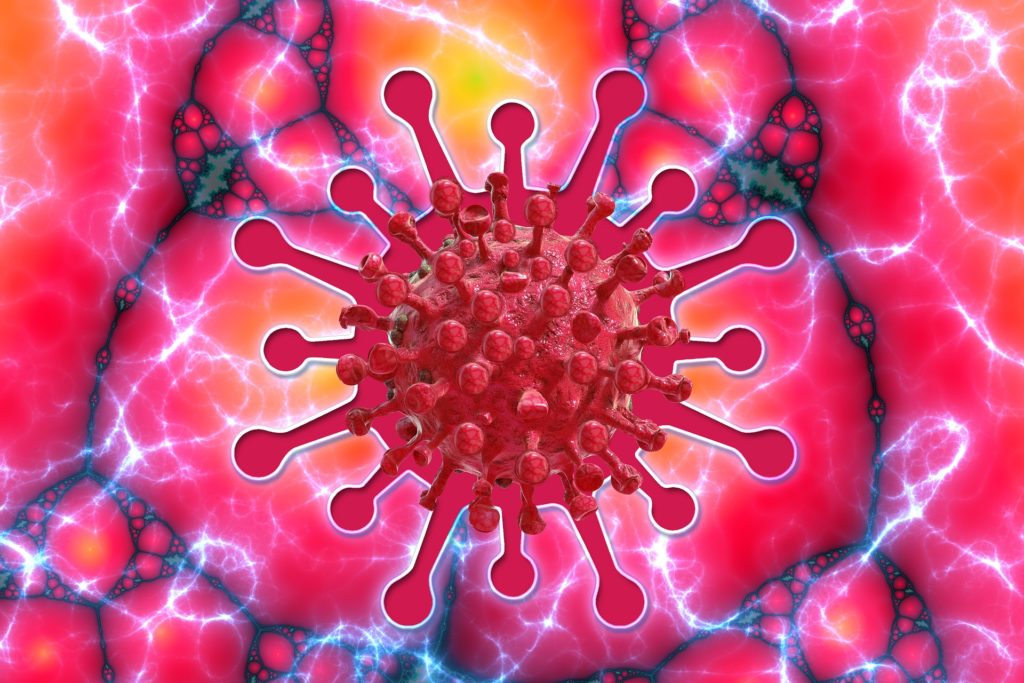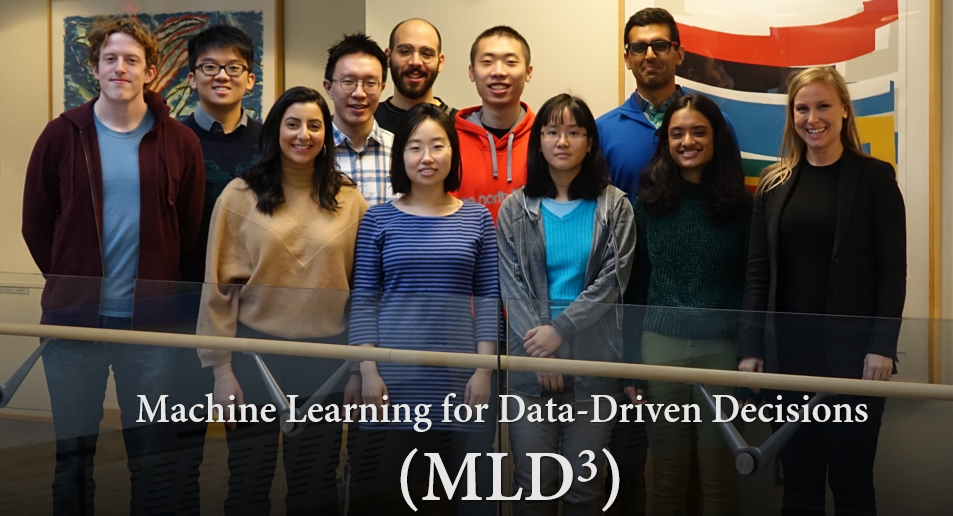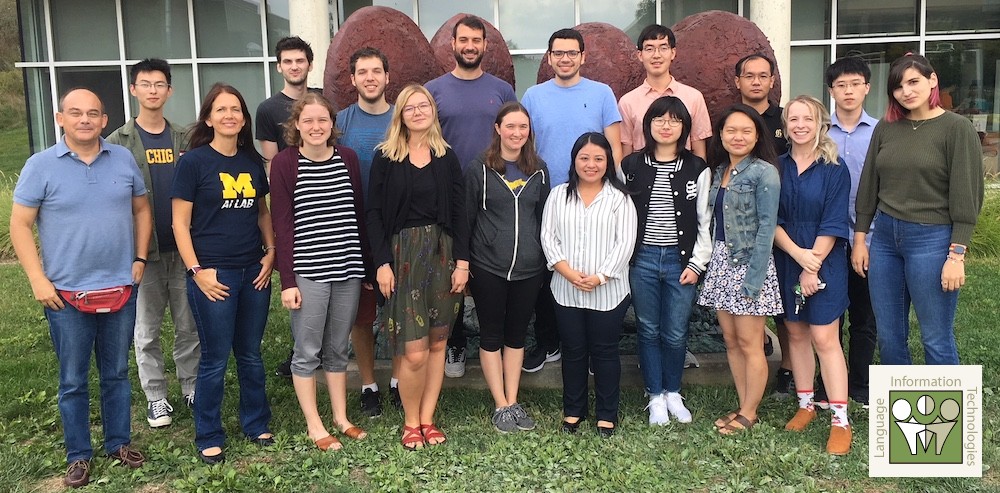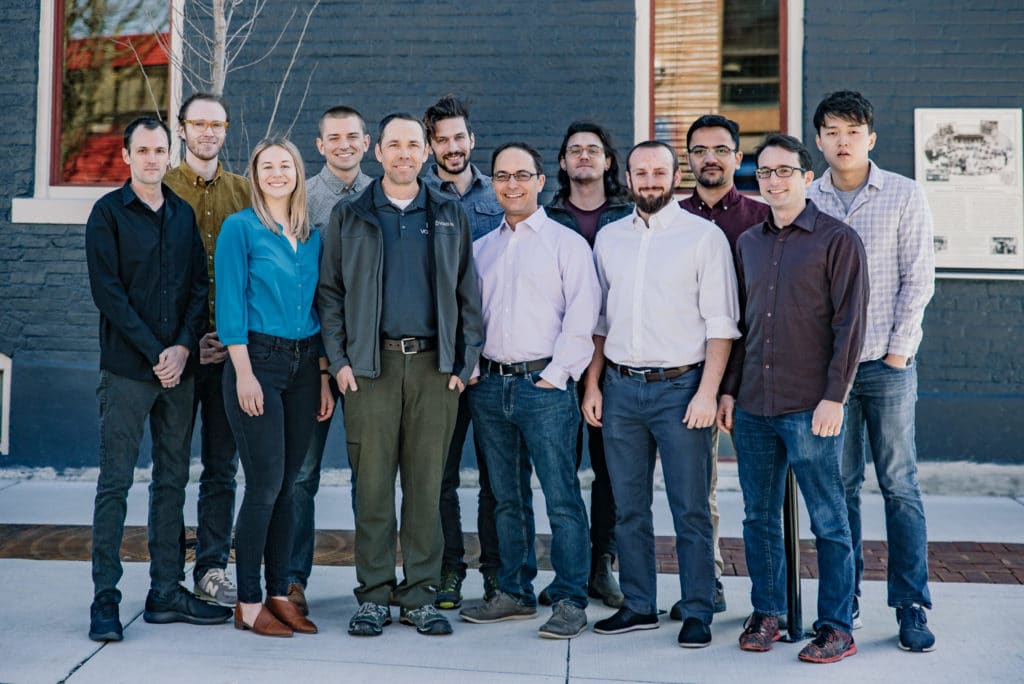Computer scientists employ AI to help address COVID-19 challenges
Five multidisciplinary research teams are working on projects to assist with the coronavirus outbreak and to help find solutions to pressing problems.

 Enlarge
Enlarge
The Coronavirus pandemic has changed the world around us and is affecting our health, our economy, our social interactions, and so much more. Computer science faculty and students affiliated with AI Lab have partnered with clinicians and experts from other disciplines to bring their expertise to assist with the outbreak and to help find solutions to pressing problems.
Some of the projects that are now in progress are listed here.
Michigan COVID-19 Utilization and Risk Evaluation System (M-CURES)

 Enlarge
Enlarge
Students in the Machine Learning for Data-Driven Decisions research group, led by Prof. Jenna Wiens, are collaborating closely with researchers in the Institute for Health Policy Innovation and Michigan Medicine to evaluate and build models using clinical data including laboratory results, vital sign measurements, and receipt of medications for predicting patient outcomes and resource utilization in patients who test positive for COVID-19 to guide clinical and operational work.
The lab includes students Ian Fox, Sarah Jabbour, Fahad Kamran, Meera Krishnamoorthy, Benjamin Li, Jeeheh Oh, Erkin Otles, Harry Rubin-Falcone, Shengpu Tang, Donna Tjandra, Jiaxuan Wang, and Prof. Wiens.
Digital Assistance to Help People Cope with the COVID-19 Outbreak

 Enlarge
Enlarge
Aside from the urgent health implications of the COVID-19 pandemic, the outbreak has also caused numerous other issues in people’s lives: anxiety, loneliness, work loss, homeschooling, boredom and lack of sleep, among many others. While counseling strategies have been found useful in the past to provide therapeutic support to people in need, such services are not easily scalable.
In a collaboration involving psychologists from University of Texas, motivational interviewing experts from the U-M School of Public Health, and health communication experts from Michigan Medicine, researchers from the Language and Information Technologies research group including Rada Mihalcea, Janice M. Jenkins Collegiate Professor of Computer Science and Engineering, and PhD students Charlie Welch, Allison Lahnala, and Siqi Shen, and research scientist Veronica Perez-Rosas are working to build an online interface where people can write about the major issues they are facing during the COVID-19 outbreak. The system will use natural language processing to analyze the responses and provide personalized feedback and pointers to useful resources.
Natural Language Processing to Understand Changes in Mental Health
Social distancing and self-isolation are leading to major changes in daily routines. Adding to this the numerous recent job losses and expected economic downturns, the current outbreak is likely to have significant implications on people’s mental health, leading to an increased rate of depression.
Prof. Rada Mihalcea and PhD student Laura Biester from the Language and Information Technologies research group, MS student Katie Matton from the Computational Human Analysis and Integration research group, and PhD student Janarthanan Rajendran are developing natural language processing methods to understand the changes in mental health associated with the outbreak, and whether certain people are more susceptible to be affected by these changes. Their work is informed by collaborations with psychologists and experts in the study of depression from the School of Public Health and Medical School at Michigan, and the Psychology department at the University of Texas.
Understanding the Effect of Human Behaviors on Social Distancing

 Enlarge
Enlarge
Knowledge about the effects of social dynamics on virus transmission and prevention informs development of processes and actions to fight the global pandemic. However, there are many recent policies put in place (e.g., CDC recommendations for transmission prevention to households with family members who contracted COVID-19) without enough evidence to suggest to what extent those policies help stop/slow down the spread of COVID-19. To make accurate decisions about policy it is necessary to go beyond simple abstract models and account for people’s behaviors, which are often complex: they are purposeful and triggered by the situations in which their behavior is situated.
Prof. Nikola Banovic, along with PhD students Snehal Prabhudesai, Divya Ramesh, Nel Escher, Anindya Das Antar, and Sumit Asthana, in collaboration with Michigan Medicine, aim to develop detailed models of behavior (accounting for people’s socio-economic status, political orientation, and exposure to various information about COVID-19), which can accurately simulate what people do in various situations they find themselves in. Such computational models of people’s behaviors will enable reasoning and decision-making about different “what-if” situations to inform current policy to address the COVID-19 global challenge.
Measuring the Social Impact of the Coronavirus Pandemic

 Enlarge
Enlarge
Voxel51, the computer vision startup led by Prof. Jason Corso, is tracking the impact of the coronavirus global pandemic on social behavior, using a metric called the Voxel51 Physical Distancing Index (PDI).
The PDI helps people understand how the coronavirus is changing human activity in real-time around the world. Using cutting-edge computer vision models and live video streams from some of the most visited streets in the world, the PDI to continuously track vehicle, cyclist, and pedestrian traffic in real time at some of the most visited places in the world.
 MENU
MENU 
